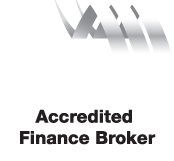Is a SMSF loan right for you?
A growing number of Australians are taking control of their retirement planning and switching to self-managed super funds (SMSF); and with the introduction of limited recourse borrowing arrangements (LRBA) in 2010, SMSF trustees can now borrow funds to purchase investments like commercial and residential property.
Borrowing criteria
SMSF borrowing is highly regulated and the lending criteria tend to be stricter than they are for individuals applying for a home loan. Tight regulations around LRBA’s limit the recourse of a lender to the security asset only, minimising risk to the superannuation fund in the event of a default on the loan.
To achieve this, a separate property trust and trustee must be established to hold the property on behalf of the super fund. All the income and expenses of the property go through the super fund’s bank account. If the fund fails to meet all repayments, the lender only has the property held in the separate trust as recourse, and cannot access the remaining assets of the super fund. To avoid default, your SMSF must always have money available to meet the loan repayments. The SMSF can fund the loan repayments through rental income on the property and through superannuation contributions.
What type of property can a SMSF invest in?
You can get a SMSF loan to purchase commercial or residential property provided the sole purpose of the loan is to provide retirement benefits to the fund’s members. In other words, you cannot live in a property you purchase through your SMSF.
In order to pass the mandatory sole purpose test, an investment property:
- must be maintained for the purpose of retirement benefits for its members and beneficiaries;
- cannot be a residence lived in by family, friends or associates of any fund member;
- cannot be bought from anyone associated with a fund member;
- cannot be rented by a person or entity related to a fund member.
A commercial property that is exclusively used for business purposes, can however, be leased back to a fund member or someone associated with a fund member. There are, however specific conditions regarding commercial property investments:
- The tenancy agreement must be commercially competitive
The tenant’s rent payments should be in-keeping with the current rental market. The ATO regularly audits SMSFs to make sure they are compliant. - Valuations
SMSF regulations require commercial properties to be valued at regular intervals.
Cash flow considerations
You should carefully consider the impact of SMSF borrowing on your fund’s cash flow. All investment carries some form of risk, especially when borrowing to invest. Your investment property needs to generate enough rent to cover all the costs as well as any minimum pension payments. If one of the superannuation fund members is injured or retires earlier than expected, the trustee may be forced to sell at an inopportune time
That said, investing in property can be very advantageous to a SMSF:
- The tax rate of 15% is substantially lower than most individual personal tax rates
- Capital gains tax will also be discounted or waived entirely if the investment is sold while the SMSF is in its pension phase.
We always recommend you seek independent financial advice prior to making any decisions relating to your financial future.
If you would like to discuss applying for a SMSF loan, contact us today.
Ready to talk?
Schedule a ZOOM Meeting with Greg


